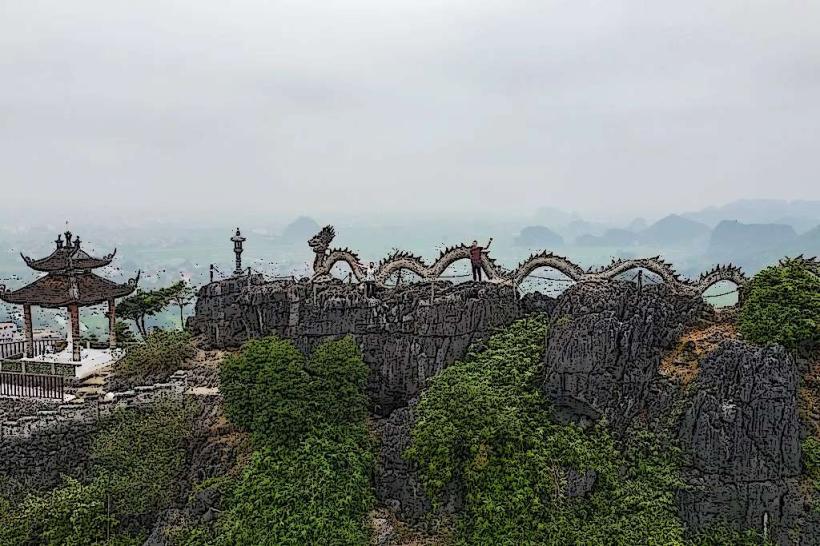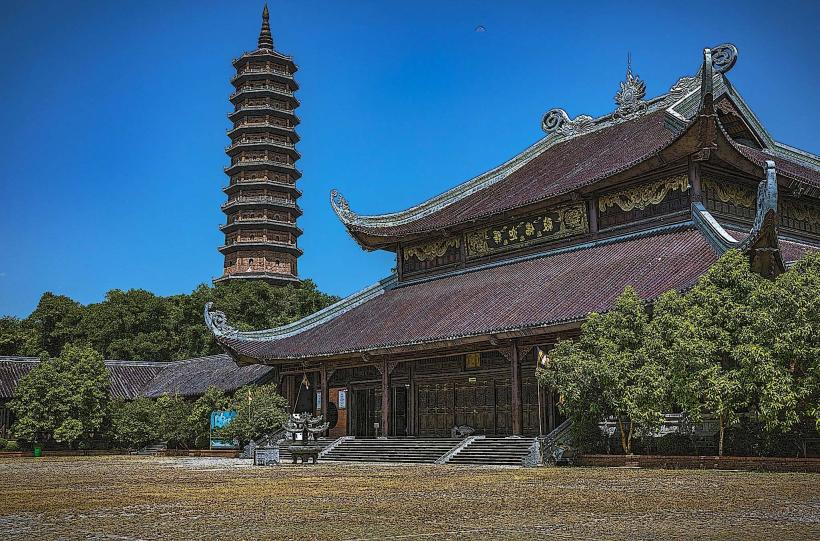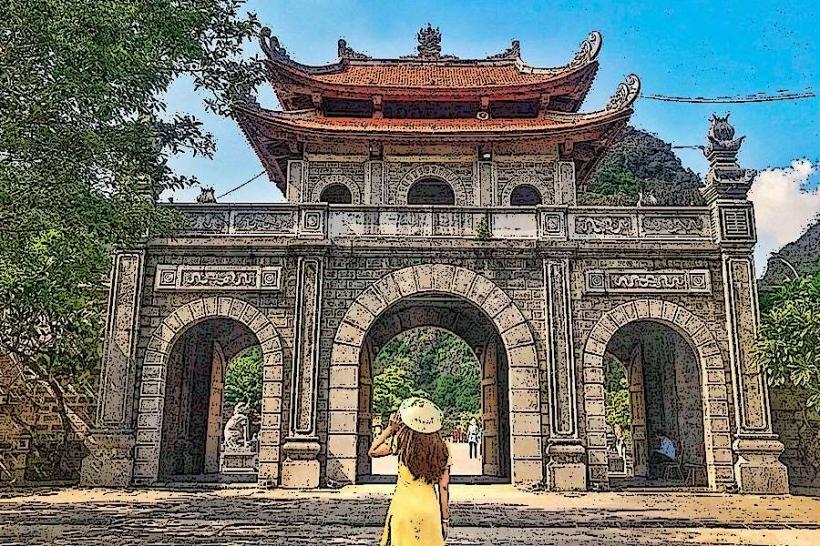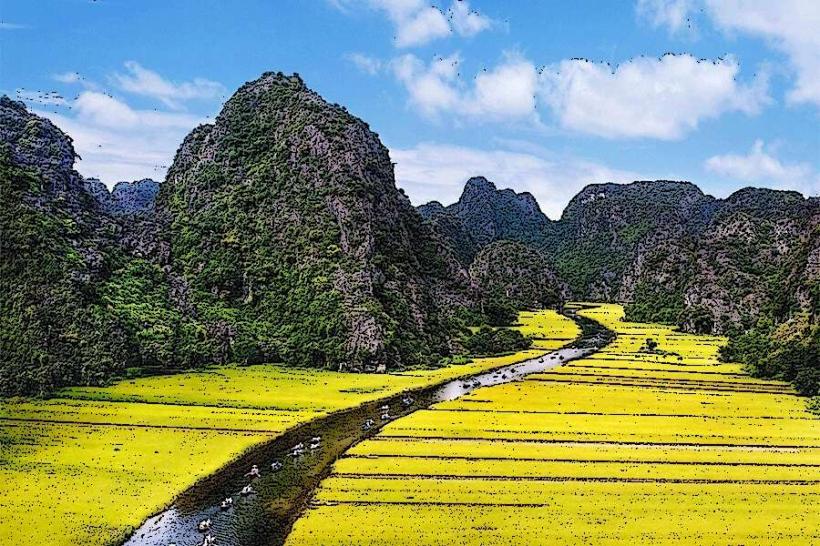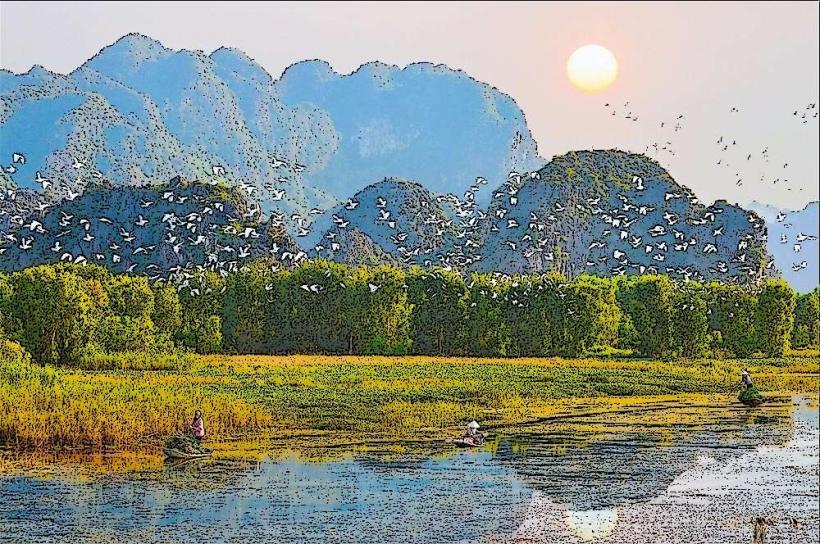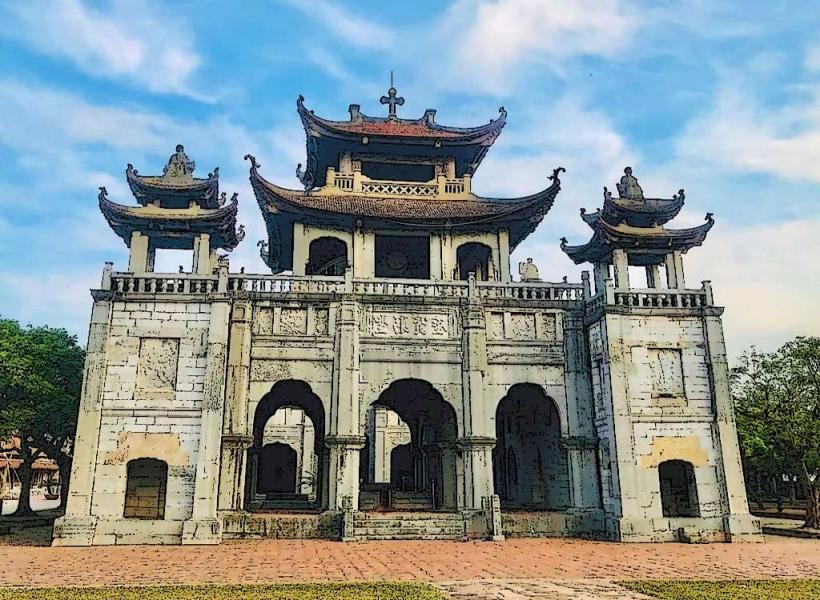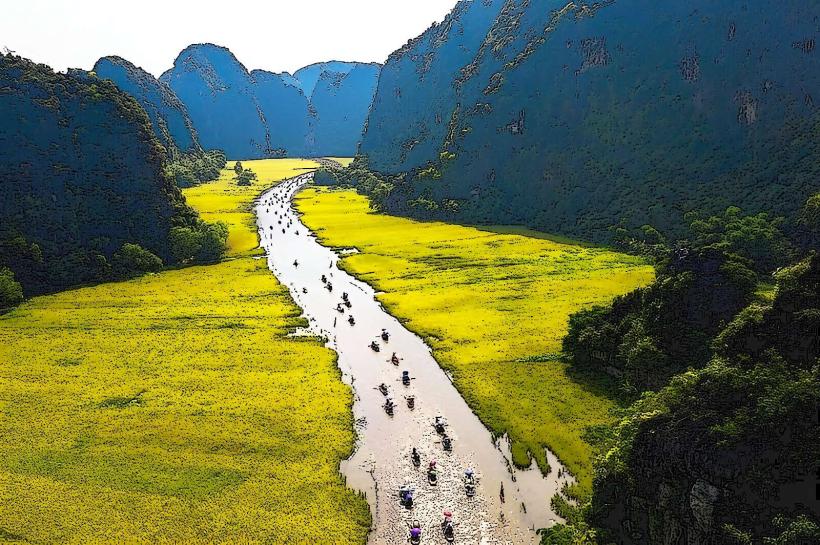Information
Landmark: Cuc Phuong National ParkCity: Ninh Binh
Country: Vietnam
Continent: Asia
Cuc Phuong National Park, Ninh Binh, Vietnam, Asia
Cuc Phuong National Park is Vietnam's oldest national park, situated in Ninh Binh province.
It protects a significant area of limestone forest and diverse wildlife.
Visual Characteristics
The park features dense tropical evergreen forest covering limestone karst mountains. Elevation ranges from 150 meters to 677 meters at its highest peak. The forest canopy is thick, with a variety of tree species, including ancient trees like the Great Tree of Cuc Phuong. Small streams and occasional waterfalls are present within the forested areas.
Location & Access Logistics
Cuc Phuong National Park is located approximately 120 kilometers southwest of Hanoi. Access is via National Highway 1A to the town of Ninh Binh, then continuing on provincial road 477 for about 20 kilometers to the park entrance. Private vehicles can park at designated areas near the visitor center. Public bus services operate from Hanoi to Ninh Binh city, with local taxis or motorbike taxis available for the final leg to the park.
Historical & Ecological Origin
Established in 1962, Cuc Phuong National Park was designated to protect the country's flora and fauna. It is classified as a tropical monsoon forest ecosystem. The park's geological origin is primarily limestone karst, formed over millions of years. It is home to a wide array of plant and animal species, many of which are endangered.
Key Highlights & Activities
Activities include hiking designated trails such as the 3km loop to the Great Tree of Cuc Phuong, exploring the Primate Rescue Center, visiting the Endangered Primate Rescue Center, and observing wildlife. Cave exploration is possible at sites like Trang An Cave and Pho Minh Cave. Birdwatching is a popular activity, particularly during migratory seasons.
Infrastructure & Amenities
Basic facilities are available at the park entrance, including a visitor center, restrooms, and a small restaurant. Accommodation options range from simple guesthouses within the park to more developed resorts outside its boundaries. Cell phone signal (primarily 2G/3G) is intermittent within the park, especially in deeper forest areas. Limited shade is available along main paths and at designated rest stops.
Best Time to Visit
The dry season, from October to April, offers the most favorable weather conditions for visiting. The period between December and March is ideal for birdwatching. The wet season, from May to September, can bring heavy rainfall, making some trails muddy and less accessible. For photography, early morning and late afternoon provide softer light.
Facts & Legends
A local legend tells of a benevolent spirit residing in the ancient trees, protecting the forest and its inhabitants. The park is also known for its significant butterfly population, which is most active during the warmer, wetter months.
Nearby Landmarks
- Hoa Lu Ancient Capital (5km Northwest)
- Tam Coc – Bich Dong (15km Southeast)
- Trang An Landscape Complex (18km Southeast)
- Mua Caves (20km Southeast)

